What is iron deficiency anemia? Iron deficiency anemia is a decrease in red blood cells due to having too little iron in your body. When your body doesn’t have enough iron to produce hemoglobin, which allows red blood cells to carry oxygenated blood to all your tissues, you will begin feel the effects in a multitude of ways.
Anyone can develop iron deficiency anemia, but some people are more at risk than others. Vegetarians and vegans are at risk because their diets do not include red meat, one of the biggest dietary sources of iron. Frequent blood donors are at risk for giving too much of their precious iron stores and women are especially at risk, not only because they must share their stores with a fetus during pregnancy, but they lose blood monthly during menstruation. On average, about 20% of women and 50% of pregnant women do not have enough iron in their bodies, compared to 3% of men.
Iron Deficiency Anemia Symptoms
Blood is circulated by our beating hearts to supply every cell in our bodies with vital oxygen. Iron deficiency anemia negatively impacts how much oxygen your cells get. Anemia symptoms can range in severity, and often are so mild they go unnoticed or are written off as just being “tired”. The more deficient you become, however, the worse the symptoms become, so you want to catch it early. If you are already experiencing some of the following symptoms and aren’t sure why, iron deficiency may be the answer:
1. Feeling Extreme Fatigue and/or Weakness
If you’re sleeping more than usual, aren’t waking as rested as you normally do, or are experiencing over all low energy levels or muscle weakness for an extended period of time, you may need more iron.
2. Headache, Dizziness or Light-headedness, Especially Upon Standing
Our blood pressure drops when we stand up, so if you already don’t have enough oxygen as it is, standing can cut off even more oxygen to the brain. This can cause headaches and dizziness, but can get so bad you may even faint.
3. Experiencing Shortness of Breath
Is climbing the stairs getting you more winded than it should? More cardio might not be the answer this time.
4. Getting Frequent Infections
If small cuts are getting infected despite proper care, or if they are taking longer than normal to heal, low hemoglobin levels may be to blame.
5. Cold Hands and Feet
Are you sick of people constantly exclaiming “Your hands/feet are so cold!”? Circulation issues effect your digits first, so if your fingers and toes are always freezing, or your nails turn purple, more iron, not more layers, may do the trick.
6. Weak, Brittle Nails
Your nails replenish quickly, and since you are what you eat, any nutrient deficiencies will show there first (and often your hair.) Strong, healthy nails mean your eating is on point, while splitting, weak, brittle nails are a sure fire sign you are missing iron.
7. Increased Heartbeat
Anemia can often effect your heart rate, as your heart will beat faster to try to supply your cells with more oxygen.
8. Unusual Cravings- Like, Really Unusual
Cravings are your body telling you it wants something. Most of the time, you want to ignore cravings because they are just a response to sugar you ate earlier, but if you are craving odd, non-food items, like chalk or dirt, your body is screaming for iron.
9. Restless Leg Syndrome
To people who have never experienced Restless Leg Syndrome, it almost sounds like a joke, but if you’ve ever felt that uncomfortable, almost unbearable, tingling, crawling feeling in your legs and butt that just won’t go away no matter what you do, you may have just finally found relief.
10. Suffering from Chest Pain
Chest pain is never anything to take lightly. While it is a symptom of iron deficiency anemia, it can also be a serious cardiac event, so always get chest pain checked out immediately.
What Can You Do?
The quickest way to prevent any dietary deficiency is to make sure you are eating a healthy, well balanced diet. Eating a diet full of iron-rich foods like meat, eggs, fish and leafy greens or iron-fortified cereals, breads or milk will usually do the trick if there isn’t a bigger, underlying cause for low iron levels.
You can also usually correct iron deficiency anemia with iron supplementation. Many birth control pills come infused with iron, since women are at such high risk, but iron supplements are widely available over the counter. Before you self diagnose anything, though, talk to your doctor. Too much iron can also be dangerous for your health, too, so if you or your child are experiencing symptoms, see your physician.
